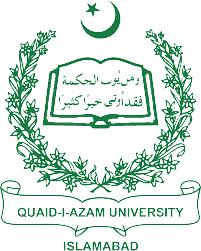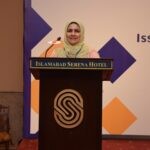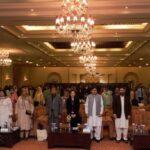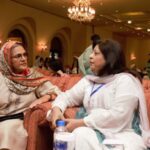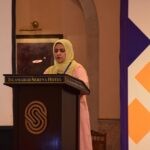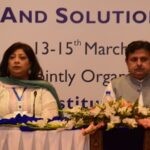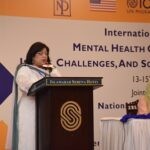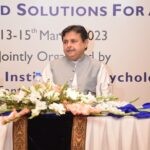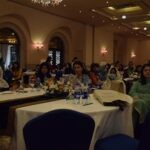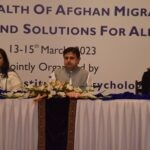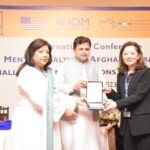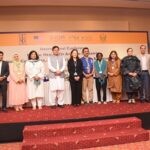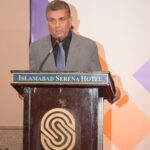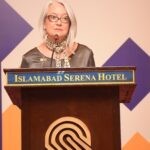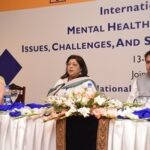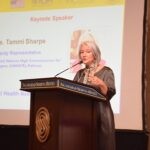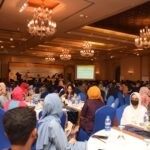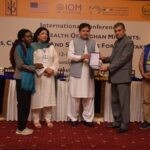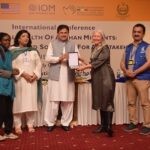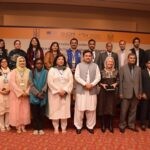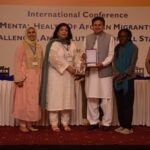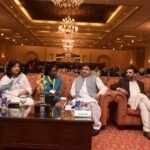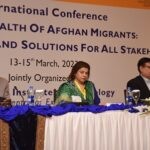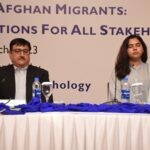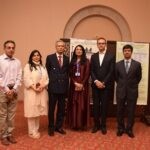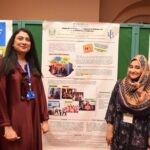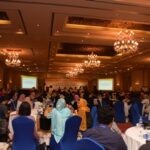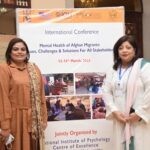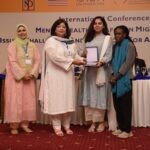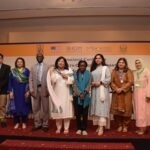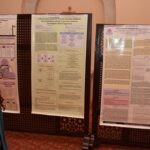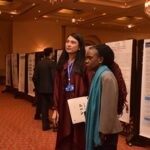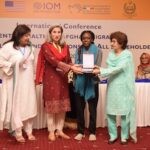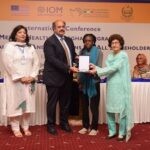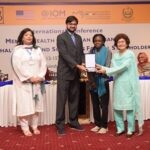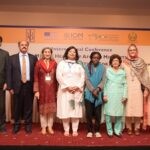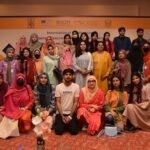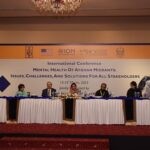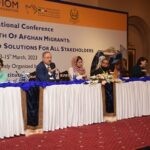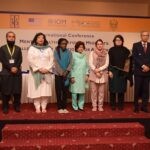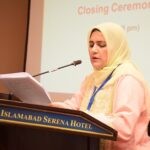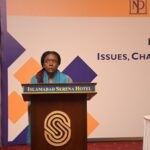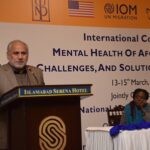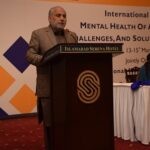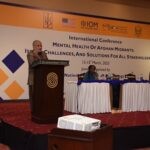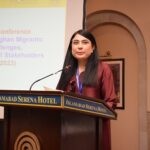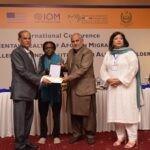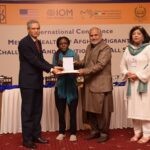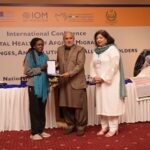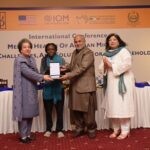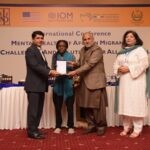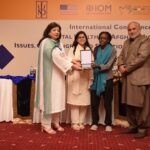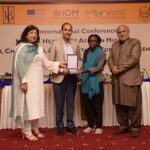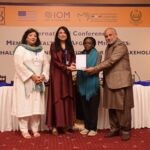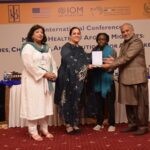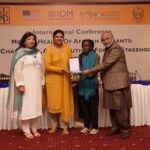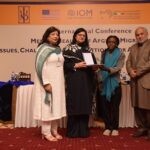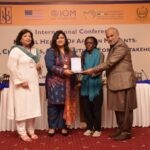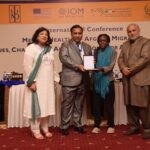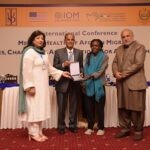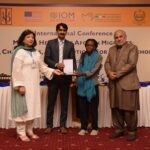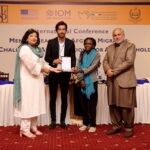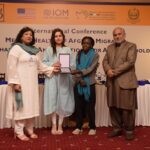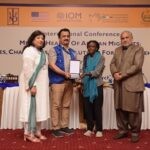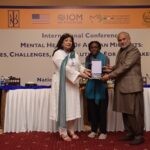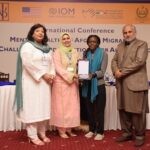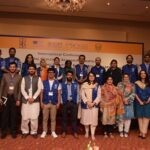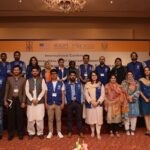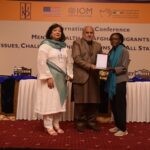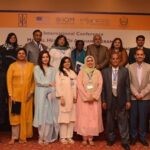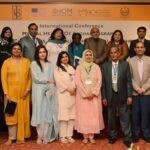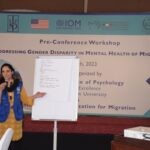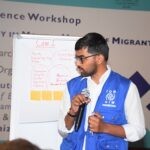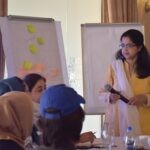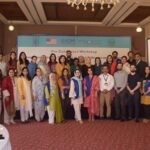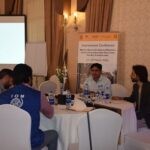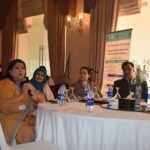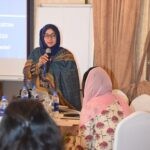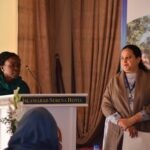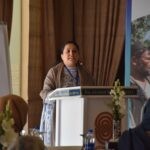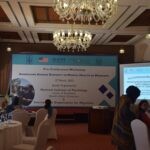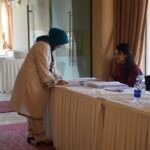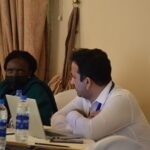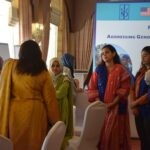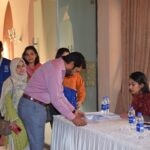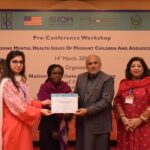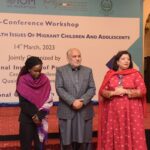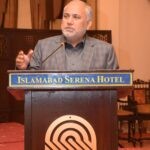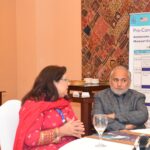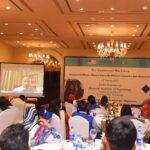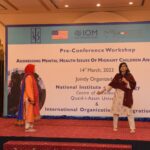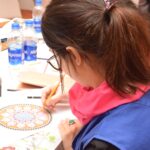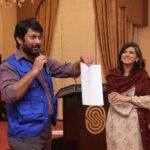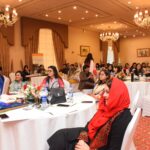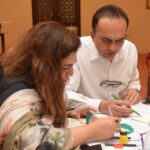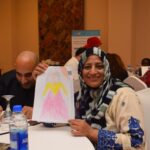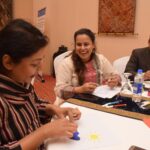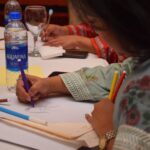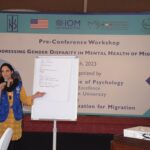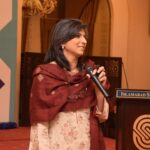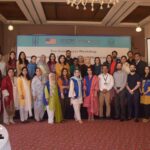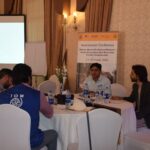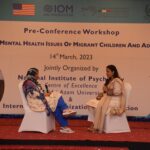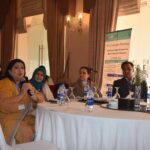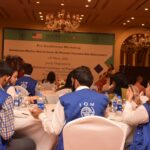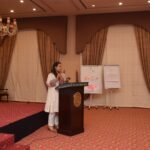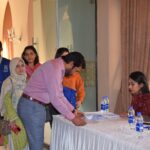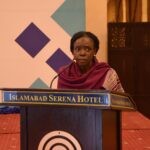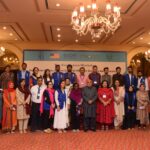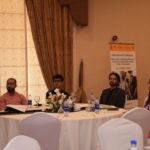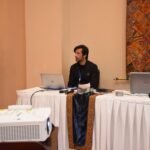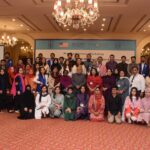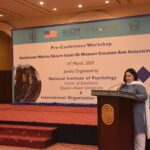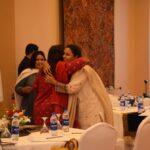NIP-IOM International Conference
International Conference
Mental Health of Afghan Migrants: Issues, Challenges, and Solutions for All Stakeholders
National Institute of Psychology (NIP) in collaboration with the International Organization for Migration hosted an international conference on “Mental Health of Afghan Refugees: Issues, Challenges, and Solutions for All Stakeholders” at Serena Hotel Islamabad on March 15, 2023. The event brought together stakeholders, researchers, practitioners, and policymakers from across the globe to discuss issues, challenges, and solutions related to the mental health of Afghan refugees in Pakistan. Prof. Dr Rubina Hanif, Director NIP, the chief organizer of the conference, alongwith Dr Humaira Jami (Organizer ) and collaborators Dr Marsela Nyawara (IOM) welcomed the guests and speakers.
The conference featured three keynote speakers, including Mr. Sher Jan Ahmadzai(USA), Professor Dr. Jahanzeb Khan(VC, FATA), and Ms. Tammi Sharpe(UNHCR). Mr. Ahmadzai is a leading mental health advocate and consultant on refugee mental health.
Two-panel discussions were also held on conference day. Renowned academicians, researchers, and professionals from the Defense and Strategic Studies department Quaid-i-Azam University, Islamabad, the Ministry of Human rights as well as the Ministry of planning, development, and reforms, Islamabad took part in these panel discussions.
During the conference, participants also engaged in interactive pre-conference workshops(13-14th March, 2023), and poster presentations. Topics such as, Mental health issues and challenges, Stigma, discrimination, and marginalization, Protection risks and a mental health Building sustainable community, Gender disparity in mental health, Children and adolescents, Institutional and structural challenges and issues Resilience and coping, were the main highlights of the conference.
Prof. Dr. Rubina Hanif, Chief Organizer of the conference and Director of the National Institute of Psychology, stated, “The conference provided a much-needed platform to discuss the mental health challenges faced by Afghan refugees living in Pakistan. We hope that the insights and recommendations shared during the conference will help to improve the mental health and well-being of Afghan refugees in our country and beyond. She invited all the stakeholders to join hands with NIP for establishing National Centre of Mental Health for Migrants within NIP premises. The main objectives for this Centre with particular focus on migrants can be: Conducting awareness programs to change the mind set and attitudes of people, providing psychological services, conducting evidence-based research on pertinent issues, developing psychosocial intervention and prevention programs, capacity building of mental health professionals through training workshops.”
The conference was concluding on positive note from Prof. Dr Muhammad Idrees, Dean Faculty of social sciences that Quaid-i-Azam University will always support NIP for these community outreach services.
The conference was a success, with participants leaving with new insights, practical tools, and valuable connections. The National Institute of Psychology is committed to continuing its efforts to advance the field of mental health and promote the well-being of all individuals in Pakistan and beyond.
Photo Gallery of NIP-IOM International Conference 2023
Pre-Conference Workshops
Day-1
National Institute of Psychology conducted pre-conference training workshop titled “Addressing Gender Disparity in Mental Health of Migrants” in collaboration with International Organization for Migrants keeping in view the pressing psychological issues faced by Afghan migrants. The primary objective of the training was to equip the frontline workers with essential theoretical and practical toolkit to deal with Afghan migrants. The workshop was attended by representatives from various national and international organizations and majority of the participants were working as social mobilizers, health officers, program development coordinators, reporting coordinators, psychiatrists, psychologists, consultants, counselors, admin officers, site officers, project assistants, as well as technical advisors. Training consisted of five sessions in total in which first three sessions were themed around gender based violence (GBV). These sessions were conducted by Ms. Sadaf Zaman who is working as Senior Project Assistant Case Management and has a vast field experience for dealing with cases of GBV. The session incorporated various engaging and effective activities including Power and Vulnerability Walk (where participants were given different roles and they needed to evaluate their powerfulness and vulnerabilities in the given situations) and think-pair-and share where participants discussed and presented root causes, contributing factors, types, and consequences of GBV. Trainer emphasized that GBV is prevalent in all types of crisis and elaborated on rights of survivors, survivor-centered case management, assessment of needs, and referral pathways.
Last two sessions took into account the psychological and emotional impact of violence as well as relevance of MHPSS (Mental Health and Psycho-Social Support) while dealing with women survivors of violence. Sessions on psychological wellbeing and MHPSS were conducted by Ms. Fauzia Yasmin who is working as Senior Manager in Rozan. The session was started with agroup activity in which participants needed to look for short term and long term effects of violence. The trainer discussed accurate psychosocial assessment of the psychological effects through interview and questionnaires. Additionally, recognizing and assessing suicidal ideation and tendencies was emphasized as suicide is the most adverse outcome of impact of gender based violence on refuges. Through MHPSS, participants were taught to conduct psychosocial supportive activities through three layers including social consideration in basic security and services, developing family and community support, and focused support which include individualized services for complicated cases.
Day-2
Day 2 of the preconference workshops was loaded with hands-on activities which were targeted at identifying the distress among children, using art therapy as a form of treatment, practicing mindfulness, and understanding conflict and peace. Sixty participants, from all over Pakistan, took part in the training. After a welcome note by Prof. Dr. Rubina Hanif, Director National Institute of Psychology, first session was started by Ms. Sharmeen Khan. She conducted activities through which social, physical, psychological, emotional, environmental, and spiritual factors of distress can be identified in children. As children are a sensitive population, Ms. Sharmeen Khan taught about protocols of conducting interviews with children and the activity was practiced by all the participants. Dr. Uzma Masroor conducted her first session on art therapy. The focus of the therapy was to teach participants regarding usage of art alongwith other therapies as well as subsequent interview techniques to reach a decision regarding the issue a child is going through. In her second session, she talked about the philosophy behind mindfulness and the techniques which can be used for developing focus and calmness of mind. Participants were engaged in various mindfulness techniques which were helpful for them as well as for the populations they were working with.
The last session of the workshop was conducted by Dr. Patrick Mcnamara who is Emeritus Director of International Studies at University of Nebraska at Omaha (UNO) and has an extensive experience in peace and conflict studies. His session was conducted virtually where he conducted group activities in order to help participants understanding dimensions of conflict, conflict resolution styles, achieving the state of inner peace and relating it to outer peace. Dr. Muhammad Idrees (Dean Social Sciences, Quaid-iAzam University, Islamabad) were invited as chief guest. The closing ceremony for the second day of preconference workshops included concluding remarks from Dr. Marsela (IOM), Prof. Dr. Rubina Hanif, and Prof. Dr. Muhammad Idrees and sitribution of shields and certificates among resource persons and participants.

